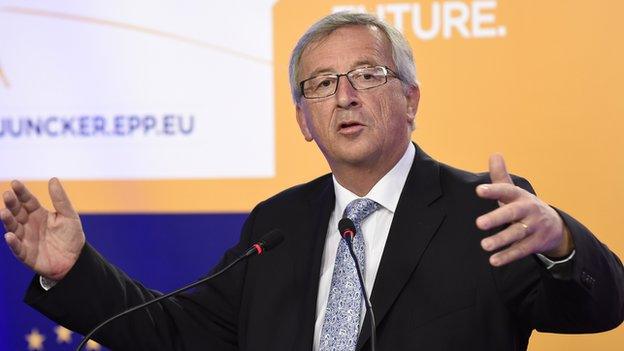Cameron says European partners agree on need for change
- Published
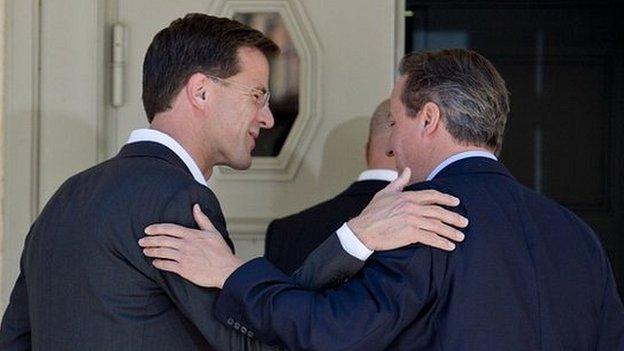
Mr Cameron is seeking to build support for his campaign to stop Jean Claude-Juncker getting the EU's top job
David Cameron has said there is "strong agreement" between the UK and three of its key allies in Europe about what the EU needs to do to change.
Speaking after a mini-summit with his German, Swedish and Dutch counterparts, the prime minister said the EU must be more flexible and less interfering.
Such change would be "helpful", he added, to his goal of keeping the UK in the EU after a planned 2017 referendum.
The UK and Germany remain split over the next European Commission president.
At the meeting in Harpsund, German Chancellor Angela Merkel reiterated her support for Jean-Claude Juncker to take the top job at the commission, the EU's executive body, saying she was "happy" for this to happen.
Mr Cameron is staunchly opposed to this, believing Mr Juncker's track record shows that he is not the right person to lead a process of returning more powers to nation states.
'Best for Europe'
Speaking at a press conference after his talks with Mrs Merkel, Swedish Prime Minister Fredrik Reinfeldt and Dutch leader Mark Rutte, Mr Cameron said the quartet had a clear idea about the EU's future direction after last month's European elections saw a sharp rise in support for anti-EU parties.
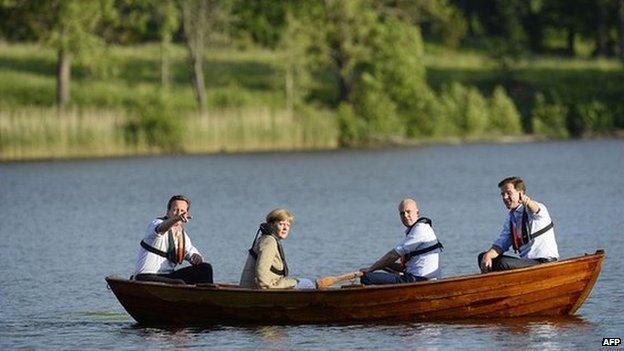
The prime minister says the four leaders have a track record of moving in the right direction
"I think there has been a very strong level of agreement about what needs to happen," he said.
"Obviously we now have to the move to the stage of looking at the right people to take forward that agenda."
Although he did not mention Mr Juncker by name, the prime minister suggested that whoever got the top job would set the tone for the debate on the UK's future role in Europe.
Mr Cameron has pledged to renegotiate the terms of the UK's membership if the Conservatives win the next election, putting the outcome to a vote of the British people in an in-out referendum in 2017.
"I have a very straightforward approach. I want Britain to stay within a reformed European Union," he added.
"That is my goal. That is what I think is best for Britain. That is what I think is best for Europe as well.
"Obviously the approach that the EU takes between now and then will be very important. If we can achieve reforms, we can demonstrate openness, competitiveness, flexibility, less interference, people who are capable of taking the EU forward in that direction, that would be helpful.
"If the EU does not go in that direction, that would be unhelpful. That is very plain and obvious."
Principles
The commission president is the most powerful job in Brussels, shaping EU policy in key areas such as economic reform, immigration and ties with other global powers.
The candidate has historically been chosen by the European Council - on which the EU heads of government sit - but under new rules they have to "take account" of the result of recent European Parliament elections.
The EPP - the largest centre-right grouping in the parliament - won the most seats in May's polls, and Mr Juncker, its nominated candidate, has argued that gives him the mandate.
Mr Reinfeldt and Mr Rutte are also sceptical about Mr Juncker's candidacy, and Mr Cameron said the "important principle" that it should be up to Europe's elected leaders to make the decision should be upheld.
"I believe the European Council has the job, as the elected heads of state and government, to come together to recommend candidates who are capable of taking forward the reform programme that is necessary in Europe," he added.
Mr Cameron cited the way the UK, Germany, Sweden and the Netherlands had worked together to press for the EU's budget to be capped and to reduce regulation as evidence of their ability to bring about change.
A decision on who will become the next commission president was expected to be announced at an EU summit on 26-27 June, although an agreement by then is by no means guaranteed.
- Published10 June 2014
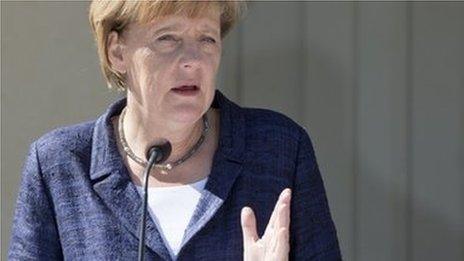
- Published10 June 2014
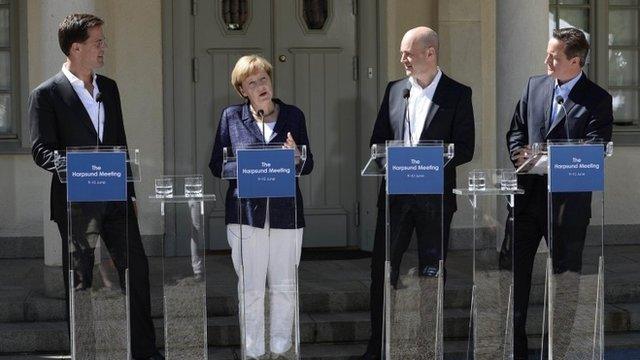
- Published10 June 2014
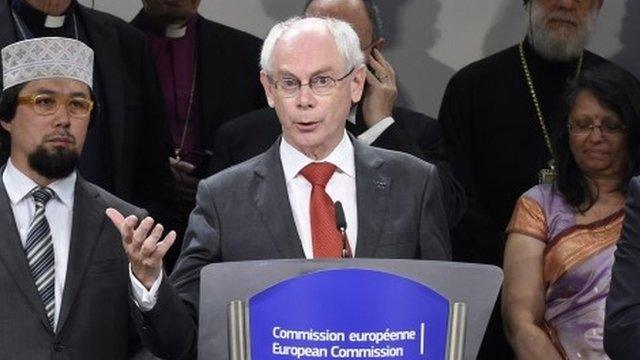
- Published24 June 2014
